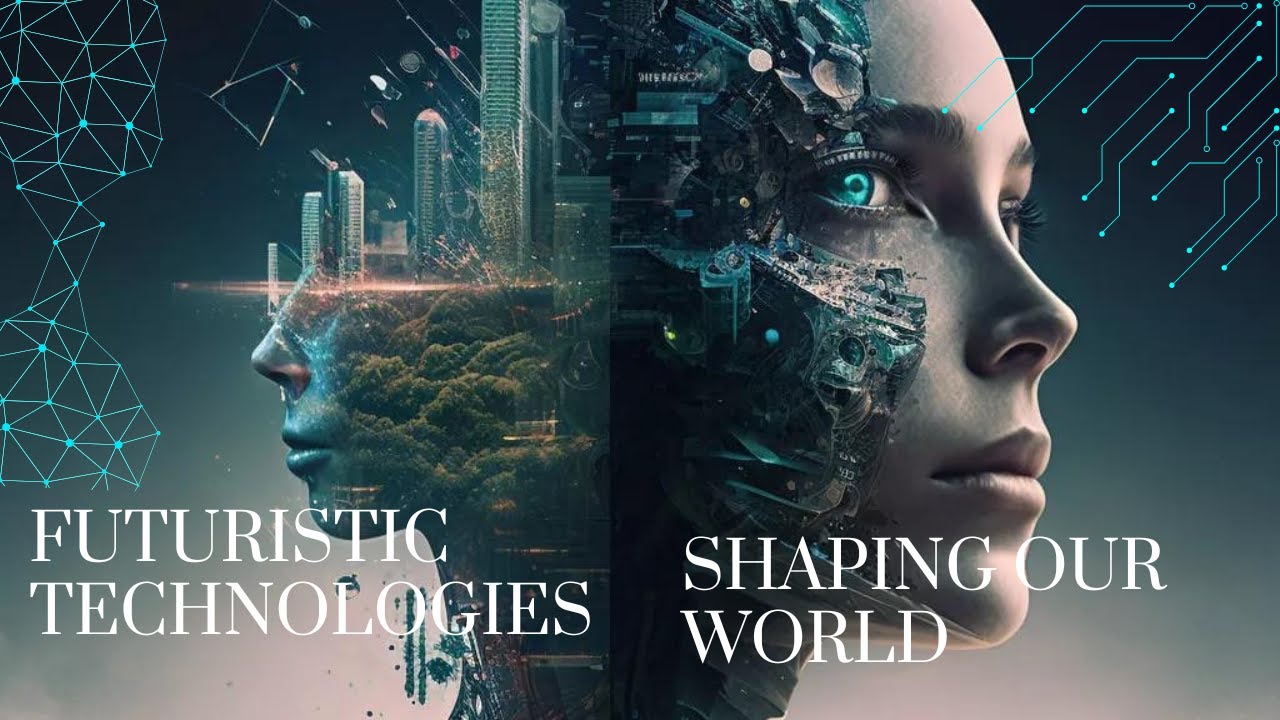Science has always been humanity’s compass, guiding us through the unknown and expanding the boundaries of what we believe possible. From the earliest attempts to harness fire to the latest advances in artificial intelligence and quantum physics, science has not only shaped civilizations but has also redefined what it means to be human. Today, as we stand at the crossroads of multiple transformative technologies, the phrase “The Science of Everything” reflects both the ambition and the responsibility of modern innovation. It suggests a world where disciplines once considered separate—biology, physics, chemistry, computer science, and even philosophy—are converging to create a deeper understanding of existence and a new set of tools for solving humanity’s grand challenges.
This exploration is not about any single discovery but about the interconnected web of ideas and inventions that form the backbone of progress. The frontiers of innovation are being stretched daily, not by isolated breakthroughs, but by a collective force of knowledge, creativity, and persistence.
The Interconnectedness of Knowledge
For centuries, scientific progress was often compartmentalized: physicists studied the laws of matter and energy, biologists focused on living organisms, and mathematicians dealt with abstract numbers. Today, those lines are blurring. Modern innovation thrives in the spaces where disciplines overlap.
Consider biotechnology. It fuses biology with engineering, computing, and chemistry, creating new medicines, gene therapies, and even synthetic organisms. Similarly, quantum computing merges physics, computer science, and mathematics to push beyond the limits of classical computation. These convergences illustrate that the science of everything is not a single body of knowledge but rather a holistic, interconnected framework where discoveries in one field ripple across others.
This interconnectedness mirrors the very fabric of the universe: complex systems—be it ecosystems, economies, or neural networks—are deeply interdependent. To explore the frontiers of innovation, we must embrace this complexity and think across boundaries.
Innovation at the Edge of Biology
Biology is no longer confined to the study of life as it exists—it now extends to life as it could be. Advances in genome editing technologies like CRISPR have revolutionized medicine and agriculture. Scientists can now edit defective genes to treat genetic disorders, engineer crops to resist disease, and even explore the ethical limits of designing future generations.
Meanwhile, synthetic biology allows researchers to program cells like software, potentially turning bacteria into factories that produce sustainable fuels, plastics, or even medicines on demand. The idea that life itself can be engineered raises profound questions about responsibility, ethics, and the definition of what it means to be “natural.”
Another biological frontier lies in the study of the brain. Neuroscience and brain-computer interfaces (BCIs) are bridging the gap between thought and technology. Companies and research institutions are developing ways for humans to control machines directly with their minds, opening possibilities for restoring mobility to paralyzed patients, enhancing memory, or one day merging biological intelligence with artificial intelligence.
The Physics of Possibility
Physics has always stretched the imagination, asking questions about the universe’s origins and its ultimate fate. At the frontier today are fields like quantum mechanics and astrophysics, both of which force us to reconsider fundamental assumptions about reality.
Quantum physics, once dismissed as esoteric, is now powering a technological revolution. Quantum computers promise to solve problems that would take classical supercomputers millennia to compute. This includes modeling molecular interactions for new drugs, optimizing supply chains, and even breaking current encryption methods. While still in early stages, the quantum race is reshaping global scientific and geopolitical landscapes.
In astrophysics, innovations such as the James Webb Space Telescope have given humanity unprecedented glimpses into the early universe. These observations are not just scientific curiosities—they help us understand the very fabric of existence, dark matter, dark energy, and the possibility of other habitable worlds. The quest to know whether we are alone in the cosmos remains one of science’s greatest frontiers.
Artificial Intelligence: The New Frontier of Thought
If biology explores life and physics explores reality, artificial intelligence (AI) explores thought. AI represents humanity’s attempt to recreate, simulate, and expand intelligence itself. Machine learning systems are already transforming industries—healthcare diagnostics, financial modeling, language translation, and creative arts.
But the true frontier lies not in replacing human effort, but in augmenting human capability. AI has the potential to accelerate discovery in every field, from predicting protein structures for medical research to designing new materials for clean energy. It can identify patterns invisible to human researchers, turning oceans of data into actionable insights.
At the same time, AI raises urgent questions: Who controls it? How do we prevent bias, inequality, or misuse? The “science of everything” is not just about knowledge but about wisdom—ensuring technology is guided by values that serve humanity rather than undermine it.
Sustainability and the Science of Survival
Innovation is not only about reaching for the stars but also about preserving our home planet. Climate change, biodiversity loss, and resource scarcity are forcing scientists to rethink how societies function. Here, sustainability itself becomes a frontier of science and innovation.
Clean energy technologies—from solar and wind to nuclear fusion—are being developed at unprecedented speeds. Advances in materials science are creating batteries that store more energy, longer, and at lower costs. At the same time, climate modeling powered by supercomputers and AI helps predict and mitigate natural disasters.
Agriculture, too, is being transformed through vertical farming, lab-grown meat, and precision agriculture, which use sensors and AI to optimize water, fertilizer, and land use. These innovations highlight that science is not only about exploration but about survival—ensuring the future of life on Earth.
Ethics at the Frontier
Every frontier of innovation comes with ethical questions. Should we edit human embryos to eliminate disease if it also means controlling traits? How do we ensure AI serves humanity rather than exacerbating inequality? Who owns genetic data, or the resources on Mars, or the algorithms that shape our digital lives?
The “science of everything” forces us to think not just as scientists but as citizens of a shared planet. Innovation without ethical grounding risks harm, while innovation guided by responsibility can elevate humanity. Just as past societies created laws to govern fire, electricity, and nuclear power, today’s generation must develop frameworks for biotechnology, AI, and climate technologies.
The Human Element
Amid the awe-inspiring technologies, one truth remains: science is fundamentally human. It is driven by curiosity, collaboration, and creativity. Every breakthrough stands on the shoulders of countless thinkers, dreamers, and experimenters across history. The frontiers of innovation are not about machines or equations alone—they are about the human spirit of discovery.
As automation increases, the uniquely human qualities—creativity, empathy, and ethical judgment—become more important than ever. The science of everything is not only about technological progress but about personal and societal growth. Education, inclusivity, and equitable access to knowledge will determine whether the next era of innovation benefits all or only a few.
Looking Ahead: Toward a Unified Science
The future may bring us closer to something resembling a true “science of everything.” A framework where biology, physics, chemistry, and computing are not separate subjects but interconnected expressions of the same underlying reality. Already, fields like systems theory, complexity science, and network science attempt to unify how we understand everything from cells to galaxies.
In the coming decades, we may see breakthroughs that seem almost magical today—practical quantum networks, artificial general intelligence, personalized medicine based on genetic profiles, and perhaps even evidence of extraterrestrial life. Each will bring not only answers but new questions, reminding us that science is never finished—it is an ongoing conversation with the universe.
Conclusion: The Endless Frontier
“The Science of Everything: Exploring Frontiers of Innovation” is more than a theme—it is a mindset. It is about seeing the universe as a unified whole, where every discovery is a thread in the larger fabric of understanding. It is about daring to push beyond the boundaries of what we know, while recognizing the responsibility to use knowledge wisely.
Innovation today is not limited by imagination but by courage, collaboration, and ethics. The science of everything challenges us to dream boldly, explore responsibly, and remember that the greatest innovation may not be the technologies we create, but the future we shape together.







